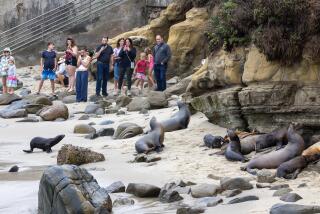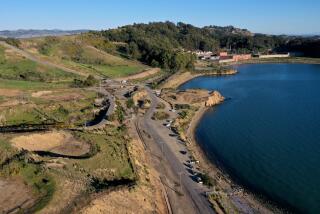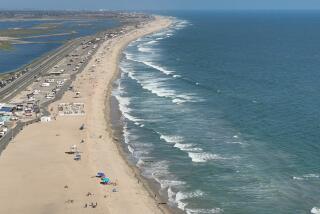Pros and Cons of Mola Project in Seal Beach
- Share via
Your editorial (Nov. 12) on the Mola Co. proposed development of the Hellman property in Seal Beach is based on incomplete information.
“Tax revenue” is not a motivating factor. If it were, this would be a high-density development. Actually, this will be the lowest density in Seal Beach. The school district and Redevelopment Agency will receive a windfall, but not the city.
Gum Grove Park is private property, leased to the city by Hellman Properties for a token fee as an accommodation to the people of Seal Beach. Its 10.5 acres include a 5.7-acre eucalyptus grove of 500 trees, only 30 of which are healthy specimens.
Mola will replace the dead trees, doctor the sick and extend the grove to 6.8 acres. However, the golf course won’t fit unless 1 acre of existing tree line and 5 acres of open land are invaded.
The Save Gum Grove Park organization is firm on “no compromise.” It demands that present boundary lines be held. That’s the predicament the City Council faces.
Your editorial implied “no development at all” is an alternative. It’s not. Laws governing takings, due process and just compensation make it risky if not foolish. As for just compensation, we couldn’t dig up $1 million, much less 20.
Our city has made reasonable effort to explore viable possibilities of outside funding. Our city, staff and council are deeply concerned about the environment and the effect on it of our actions. The wetlands, lakes, nature trail, grove and grove refuge in the proposed development reflect that concern.
Seal Beach is long on wetlands; over 1,000 acres of wildlife refuge, most of it wetlands, on the Naval Weapons Station are within a stone’s throw of the Hellman property. More wetlands would be a benefit, as you suggest, but it is economically unachievable and would shortchange recreational area, of which we have an acute shortage.
The proposed development is 70% open space. Along with golf, tennis, nature trail, driving range, ball field and a community park, it retains the eucalyptus grove and creates 20 acres of restored wetlands. These benefits are assured in perpetuity at no cost to the city with minimal imposition on the quality of life in Seal Beach.
The thrust of the editorial was that the city should defer action until every reasonable option has been explored. Options have been explored, and state law prohibits further deferring. You mentioned possible aid from the Port of Long Beach as one option. It’s not. Their business requires them to destroy 4,000 acres of wetlands and habitable fisheries for revenue and financial gain. Their interest is their bottom line. They mitigate up and down the state at the lowest possible cost. They haven’t and won’t pay $150,000 per acre for land and $60,000 per acre additional to dredge and build wetlands. They know it. All reasonable people know it.
Please be assured that all practical options will be considered and decisions will be based on a blend of facts and public concerns within the constraints of law.
JOE HUNT
Mayor
Seal Beach
More to Read
Sign up for Essential California
The most important California stories and recommendations in your inbox every morning.
You may occasionally receive promotional content from the Los Angeles Times.










